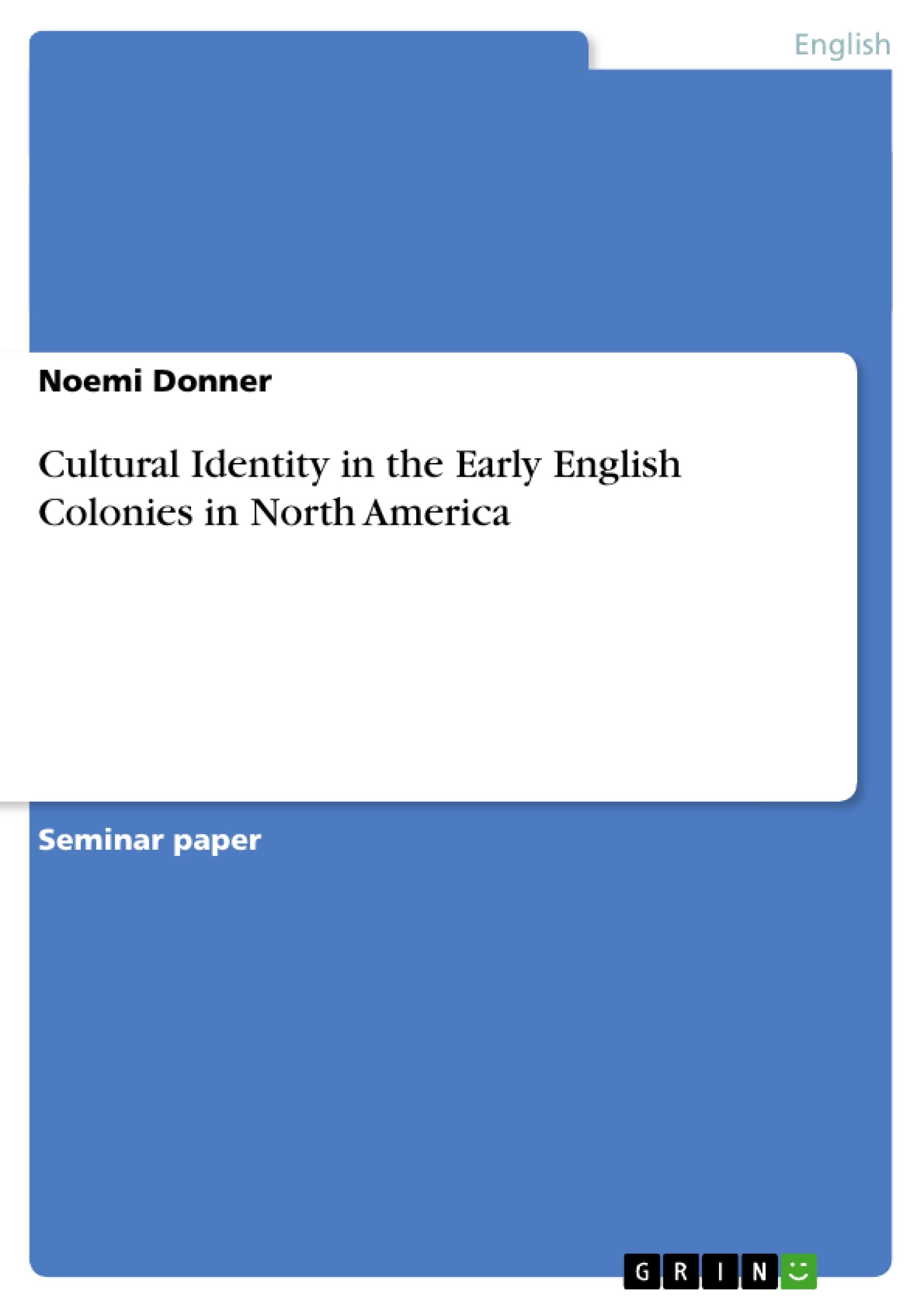The history of English settlement in North America starts in 1607 when disregarding Indians and some earlier attempts of settlers which were abandoned or not documented further. Thus, American history and civilization started with English settlers. But were they still English when they arrived in the New World? Were they not Americans from the early colonization on? Did they not leave part of their Englishness in the mother country when they entered the ship to cross the Atlantic? And did they all have the same motivations and attitudes to leave England? In order to examine their culture and to highlight obvious implementations of an evolving American cultural pattern, this paper examines the settlers’ identities, thus what they identified with and what they disclaimed. It deals with the question whether one can speak of an American culture or national feeling before the American Revolution, i.e. before the United States had become a nation. It tries to conceive or grasp the sensations of the population, their attitudes and feelings about their cultural and national identity.
Inhaltsverzeichnis (Table of Contents)
- 1. Introduction
- 2. English Immigration to North America
- 2.1. The First English Settlers
- 2.2. Divergence in Four Colonial Cultures
- 2.3. The Four Great Migrations
- 3. Englishness of the English Colonies
- 3.1. Cultural Identity and Difference
- 3.2. Americanization: The Development of an American Cultural Collective
- 3.3. American Identity
Zielsetzung und Themenschwerpunkte (Objectives and Key Themes)
This paper investigates the nature of English cultural values and norms brought by settlers to North America, the extent to which these were preserved, and how their culture and identity evolved into what we now consider American. It examines the cultural self-concept of the settlers, comparing different English colonial societies and their adaptation to the new environment. The study also considers the question of whether an American culture or national feeling existed before the American Revolution.
- The cultural identity and self-concept of early English settlers in North America.
- The preservation and evolution of English cultural values and norms in the colonies.
- The development of a distinct American cultural identity before the American Revolution.
- Comparison of different English colonial societies and their adaptation to the New World.
- The distinction between "settlers" and "immigrants" in the context of early American colonization.
Zusammenfassung der Kapitel (Chapter Summaries)
Chapter 1: Introduction introduces the central question of the paper: to what extent did the English colonies in North America retain their "Englishness," and how did an American identity develop? The chapter notes a lack of scholarly literature specifically addressing this question concerning the North American colonies and proposes to examine the settlers' cultural values, norms, and adaptations to the new environment.
Chapter 2: English Immigration to North America discusses the distinction between settlers and immigrants, using Huntington's arguments to emphasize the unique challenges and motivations of the early English settlers. This chapter also examines the role of private enterprise in establishing the colonies and the relatively limited involvement of the English government.
Schlüsselwörter (Keywords)
English colonization of North America, cultural identity, Americanization, Englishness, settlers vs. immigrants, cultural values, colonial societies, national identity, American culture, early American history.
- Citation du texte
- Noemi Donner (Auteur), 2008, Cultural Identity in the Early English Colonies in North America, Munich, GRIN Verlag, https://www.grin.com/document/120875



